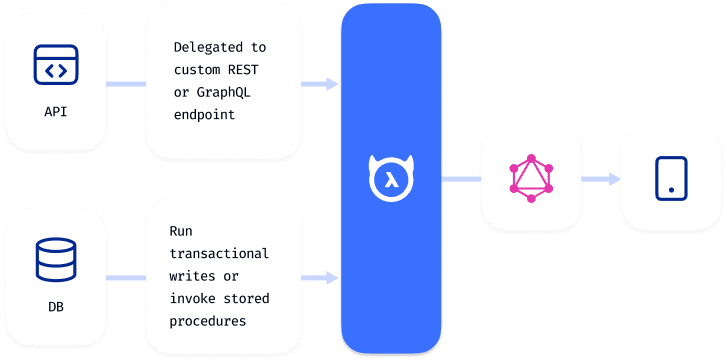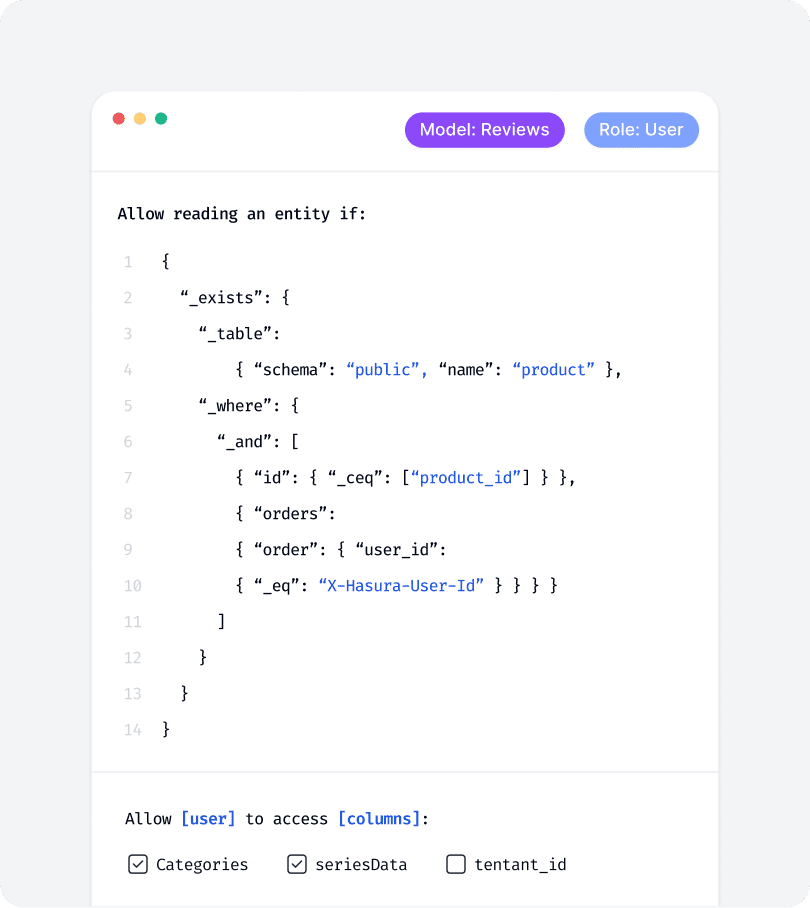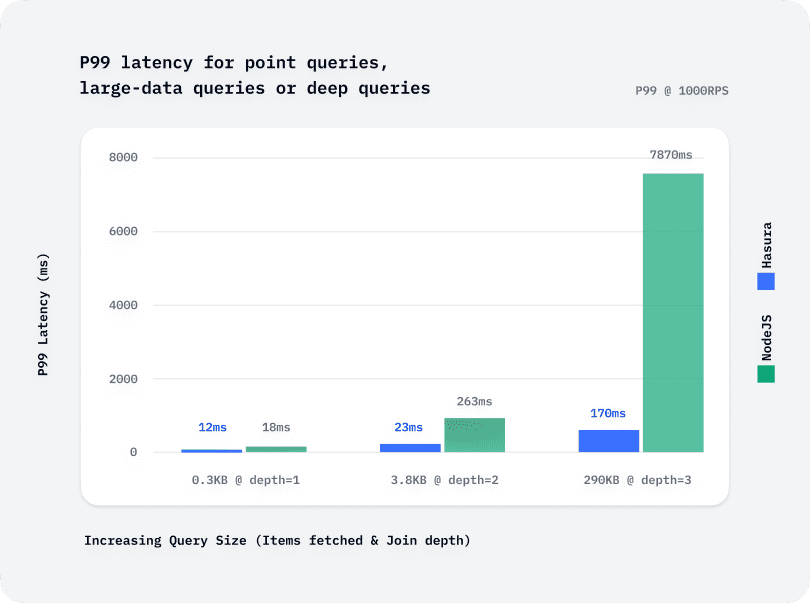From your databases to a unified API – in minutes
Run Hasura, locally or in the cloud, and connect it to your new or existing database to instantly get a production-ready GraphQL or REST API.
We support multiple databases for instant API, such as PostgreSQL, SQL Server, BigQuery, Snowflake, MySQL, and Oracle.
Built-in features
More Instant API features at a glance
Hasura creates standardized CRUD APIs from your data domain models. Create role based access and controls easily with our advanced permissions layer.
Hasura tracks your underlying data sources so that you get real-time and reactive APIs directly on your domain models without any additional “streaming” infrastructure.
Hasura's declarative metadata engine allows you to create simple or complex domain models from underlying physical data models spread across one or more data sources.
Modern applications speak a variety of API protocols. Hasura supports GraphQL and REST APIs, with support for SQL coming soon.
Hasura avoids the cartesian product problem while fetching data from the underlying system by performing JSON aggregations in the upstream database itself.













